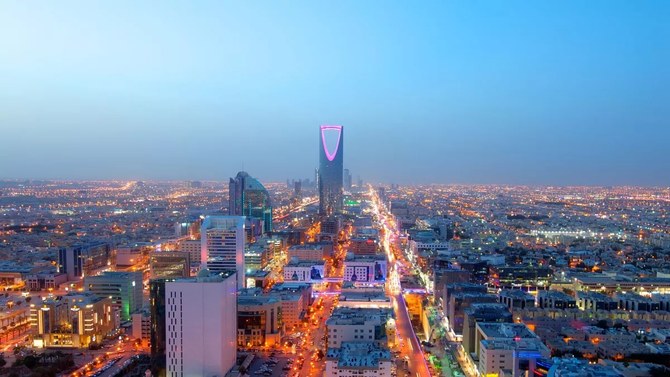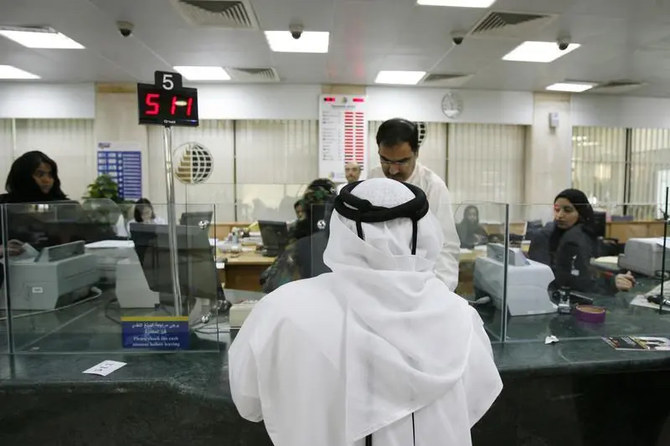BERLIN: Tohid Tasoujian is a co-founder of online fashion store Taxi Moda and one of a growing breed of Internet entrepreneurs in Iran.
He set out his stall this week at a conference of more than 80 Iranian start-ups in Berlin, the biggest event of its kind outside Iran.
A graphic designer, Tasoujian went back to school three years ago to study for an MBA at the University of Tehran. When he graduated, e-commerce was on the rise, and he persuaded a friend to found the digital shopping platform with him.
“I liked graphic design but I thought: ‘We can do more,’” the 38-year-old said.
The desire to do more is gripping an increasing number of young, tech-savvy Iranians, who have used their country’s isolation to develop home-grown versions of Amazon, eBay or YouTube.
A support system of mentors, seed funders and venture-capital funds has begun to take shape, but financing can still be hard to find and, while Iran produces many top-class computer engineers, business experience is still scarce.
“Access to finance for start-ups is still at a very nascent stage,” Mohsen Malayeri, co-founder of the Iran Entrepreneurship Association, said at the iBridge conference.
“We have talented engineers but understanding market dynamics is different.”
Some Iranian start-ups have flourished with backing from Sarava, Iran’s first venture-capital fund, which has invested in online retailer Digikala and Google Android app store Cafe Bazaar, two of Iran’s best-known Internet companies.
Digikala went on to attract a $10 million investment from a European fund last year, making headlines as this valued the company at $150 million, while Cafe Bazaar’s co-founder Hessam Armandehi is a poster child for Iran’s high-tech scene.
“We tried to create a Silicon-Valley culture inside Iran. It’s a hard thing to create. It’s very different from the mindset of investors and the government there,” said 29-year-old Armandehi, who has founded two other start-ups.
Cafe Bazaar, which offers mostly Iranian apps for social media, messaging and other uses, is already used by 21 million of Iran’s estimated 30 million smartphone owners and is growing at a rate of about 35 percent every quarter, Armandehi said.
His example has given hope to other entrepreneurs that they need not leave Iran to find success in the US or Europe — as many continue to do in a brain drain that has been going on for decades.
That is also the hope of the conference’s organizers, a community of expatriate Iranians that started in Silicon Valley, home to many prominent entrepreneurs of Iranian origin including former eBay chairman Pierre Omidyar and ex-Yahoo technology chief Farzad Nazem.
TIPPING POINT
“We said maybe we should hold a conference because whenever Iran is mentioned in the media it’s always bad news,” said iBridges core member Kamran Elahian, co-founder of multiple start-ups including Cirrus Logic and now primarily a venture capitalist and philanthropist.
The first iBridge conference was held at the University of California, Berkeley, last year and just 20 Iranians managed to get visas. A key reason for holding the next one in Berlin was the German government’s willingness to give 300 visas, he said.
Silicon Valley angel investor Dave McClure, a friend of Alahian’s, was a star attraction at the Berlin conference and found himself surrounded by dozens of hopefuls frantically pitching their companies.
McClure, though, said he had no imminent plans to invest in Iran, although its 81 million-strong population dominated by well-educated people under 35 made it an intriguing prospect.
“I’m here to meet people who are interesting and smart,” he said. “We will do some investment in Iran as soon as the US lets us.”
That cautious approach is echoed by most, but not all, foreign investors.
The European fund that bought the Digikala stake — which has not gone public about its investment — got a license from its home government because the business was not in a sanctioned industry.
But the process was difficult, said Griffon Capital co-founder Xanyar Kamangar, who advised on the deal.
And Germany’s Rocket Internet, which is building a global e-commerce empire by replicating proven Internet businesses in emerging and frontier markets, is poised to enter Iran through a joint venture with South Africa’s MTN.
The venture, Middle East Internet Group (MEIG), was founded in 2013 and has operations in six countries in the region, mainly in the Gulf. Telecoms operator MTN is a minority shareholder in Iranian carrier Irancell.
MEIG however is not operating in Iran yet, a Rocket spokesman said.
Any lifting of sanctions is to be welcomed but will be a mixed blessing for Iran’s still-fragile high-tech scene, said Malayeri, who runs a start-up accelerator firm alongside his work at the Iran Entrepreneurship Association.
Asked whether the industry was resilient enough to withstand an influx of companies such as Rocket, he said: “Not yet.”
“This year will be a tipping point,” Malayeri said.
“We either win or we lose the whole thing.”
Iranian start-ups discuss funding at Berlin conference
Iranian start-ups discuss funding at Berlin conference
Pakistan says expecting more high-level Saudi business delegations amid investment push

ISLAMABAD: Pakistan expects continued visits by high-level business delegations from Saudi Arabia in the upcoming weeks to further explore investment opportunities facilitated under the Special Investment Facilitation Council, the Foreign Office announced on Thursday.
The statement came just days after Prime Minister Shahbaz Sharif concluded his visit to Riyadh, where he addressed the two-day World Economic Forum conference.
During his visit, Sharif met with Crown Prince Mohammed bin Salman and several Saudi ministers to strengthen bilateral relations and economic partnerships between the two nations.
Prior to his visit to the Kingdom, Saudi Foreign Minister Prince Faisal bin Farhan was in Islamabad with a large delegation, saying the Pakistani administration’s resolve to strengthen the economy would yield “significant benefits.”
“Saudi investors have been coming to Pakistan in recent months, and engaged with the SIFC in terms of exploring opportunities for Saudi investments in Pakistan, and this is an ongoing process, and we expect similar high-level business delegations to undertake visits to Pakistan in the coming days and weeks as well,” Foreign Office spokesperson Mumtaz Zahra Baloch told reporters in her weekly media briefing.
She added that both countries were involved in robust and mutually beneficial dialogue that had gained significant momentum in recent months.
“Pakistan and Saudi Arabia are engaged in consultations with each other in terms of increased Saudi investments in Pakistan, including in the energy domain,” she added.
Asked about reports of Pakistan providing military bases to the US, Baloch called them rumors.
“Pakistani has no plan to provide any bases to a foreign country against any other country,” she said.
Speaking about the Organization of Islamic Cooperation’s summit in Gambia, the spokesperson said the country’s deputy prime minister, Ishaq Dar, would highlight the ongoing genocide in Gaza, the right to self-determination of the people of Jammu and Kashmir, the imperatives of solidarity and unity of the Muslim ummah, rising Islamophobia, issues of climate change, terrorism, and other contemporary global challenges.
She said Pakistan strongly condemned the escalating violations of human rights by Israel and increasing number of illegal Israeli settlements in the West Bank.
“Israel’s actions constitute a breach of international law, including humanitarian laws and other pertinent international laws, and these acts also undermine any prospects of a two-state solution,” she added.
Saudi authority imposes $11.4m in fines on investors for dodgy practices

RIYADH: Saudi Arabia’s Capital Market Authority slapped fines to the tune of SR42.9 million ($11.4 million) on 13 investors and others found in violation of the law.
A total of SR17 million fines have been imposed on 13 investors “for placing purchase orders that influenced the share price, some of which were linked to sale orders, while trading on the shares of listed companies.”
A CMA statement said: “They and other investors were obligated to pay a total of SR25.9 million for the illegal gains achieved in their investment portfolios.”
The authority clarified that the definitive decision of its Appeals Committee for the Resolution of Securities Disputes resulted from the coordination and mutual collaboration between the authority and relevant entities.
It added that the action was taken in light of the public criminal lawsuit filed by the Public Prosecution.
CMA underscored the importance of investor confidence in fostering the growth and advancement of the financial market. It reiterated its commitment to vigilantly observe any misconduct, apprehend wrongdoers, and ensure the implementation of appropriate measures to impose penalties.
Moreover, it stated that these actions are consistent with the authority’s endeavors to nurture an appealing atmosphere for investors of all types, shielded from unjust, precarious, deceitful, fraudulent, or manipulative activities.
Saudi energy minister lauds growing economic ties with Uzbekistan

RIYADH: Saudi Arabia and Uzbekistan’s economic cooperation models reflect mutual commitment to prosperity through shared goals in the two countries’ 2030 plans, said the Saudi energy minister.
During the main dialogue session of the third Tashkent International Investment Forum, Prince Abdulaziz bin Salman emphasized the distinguished relations between the two nations and the commitment of their leaderships to enhance and develop cooperation in all fields, particularly in the energy sector.
Uzbekistan President Shavkat Mirziyoyev also attended the meeting.
The Saudi minister pointed out that economic cooperation between the two countries serves as a model, especially in light of the “Uzbekistan 2030” strategy and the Kingdom’s Vision 2030, with their similar goals aimed at economic growth, diversification, and sustainable development, reflecting a mutual commitment to building a prosperous future for both nations, according to the Saudi Press Agency.
“The bilateral relations saw a notable advancement subsequent to a meeting between Crown Prince Mohammed bin Salman and President Mirziyoyev in Riyadh in 2022,” he said.
Prince Abdulaziz stressed the significance of the energy sector in the growing relations between the two nations, particularly in renewable energy, highlighting the substantial involvement of Saudi companies in Uzbekistan, exemplified by ACWA Power.
He elaborated on the investment flowing between the two countries in this domain, eclipsing $14 billion, with the aim of producing over 11 gigawatts of renewable energy electricity, affirming that Uzbekistan has demonstrated a serious commitment to achieving a fair and equitable energy transition, aligning with the Kingdom’s aspirations.
The energy minister further underscored the rational stances jointly embraced by both nations, placing significant emphasis on the critical aspects of energy security, development, and conservation.
He also underscored the two countries’ collaborative roles in addressing climate change through collective endeavors.
Recently, ACWA Power signed a power purchase agreement with the National Electric Grid of Uzbekistan for the Aral five-gigawatt wind power project worth SR18.2 billion ($4.85 billion).
Two weeks ago, ACWA Power announced it had secured an $80 million equity bridge loan from the Bank of China for its projects in Uzbekistan.
The Saudi entity said the fund will boost its Tashkent 200 megawatts solar photovoltaic power plant and 500 MW per hour battery energy storage system project in Uzbekistan.
“This transaction culminated the initial agreement reached during the 3rd BRF (Belt and Road Forum) summit in October 2023, where ACWA Power was represented by its chairman as a keynote speaker,” the company said in a statement.
Alvarez & Marsal opens regional headquarters in Riyadh

RIYADH: Underscoring international confidence in the Saudi economy, global consulting firm Alvarez & Marsal has become yet another company to have opened its regional headquarters in Riyadh.
In a press statement, the US firm stated that the inauguration of the new regional headquarters underscores its commitment to contributing to the country’s transformation agenda.
“As the company continues to deepen its roots in the country, with expertise across various sectors — from banking and tax to healthcare and disputes and investigations — this strategic move aims to leverage local insights in the Kingdom to drive sustainable growth and innovation.” the company said.
Additionally, A&M announced that it has included 13 skilled Saudi graduates in the inaugural batch of its Bidayah Graduate Program.
The company stated that these candidates were selected from a competitive pool of applicants, describing the chosen individuals as representing the bright future of the Kingdom and reflecting the potential that A&M sees in local talent.
James Dervin, managing director of A&M in the Middle East and co-head in the region, stated that the program is designed to develop the next generation of execution-focused leaders in management consulting. It is guided by the A&M principles of leadership, action, and results.
“Over the course of 12 months, participants will undergo rigorous training, engage in live project work, and receive mentorship from seasoned industry experts,” he said.
Dervin added: “Coupled with the incorporation of our regional headquarters in Saudi Arabia, the program underscores A&M’s commitment to investing in the professional development of Saudi nationals and aligning with the Kingdom’s ambitious Vision 2030,”
He further noted that the new graduates will have a significant, positive impact on his firm and the clients it serves.
Commenting on the close alignment of A&M’s global brand with the local market dynamic in Saudi Arabia, Bryan Marsal, A&M’s CEO and co-founder, said: “The all-encompassing nature of the Saudi Arabian transformation is driving significant demand for A&M’s distinctive ‘get-stuff-done’ brand of services — for our ability to fix problems, our ‘skin in the game’, and our freedom from audit conflicts.”
With over 9,000-strong workforce across six continents, A&M generates tangible results for corporations, boards, private equity firms, law firms, and government agencies grappling with intricate challenges, according to its website.
More than 180 major global companies and organizations have already established regional headquarters in the Saudi capital. These include Apple, Microsoft and Alibaba, as well as the IMF, IBM, and Google.
Other notable entities on the list include German consultancy firm TUV Rheinland, PwC Middle East, Aramex and Amazon.
UAE banks’ aggregate capital, reserves exceed $136bn

RIYADH: UAE-based banks’ aggregate capital and reserves reached 501.5 billion dirhams ($136 billion) at the end of February, up 14.4 percent year-on-year, according to new data.
The latest statistics from the Central Bank of the UAE showed that on a monthly basis, the total capital and reserves grew 0.95 percent, reflecting an increase of approximately 4.7 billion dirhams, according to the Emirates News Agency, also known as WAM.
This rise in figures falls in line with the central bank’s goal of enhancing monetary and financial stability in the country.
Moreover, the data indicated that national banks accounted for around 86.5 percent of the aggregate capital and reserves of banks operating in the UAE. At the end of February, they recorded a total of 433.7 billion dirhams, an annual rise of 14.6 percent.
On the other hand, the share of foreign banks settled at 13.5 percent, hitting 67.8 billion dirhams at the end of the same month, reflecting a 13.2 percent surge compared to the same period a year earlier.
Furthermore, at the end of February, the total capital and reserves of banks operating in Dubai alone stood at 246.4 billion dirhams, logging a year-on-year growth of 15.1 percent.
Additionally, banks operating in Abu Dhabi recorded around 217 billion dirhams, up 13 percent from the corresponding period in 2023.
Meanwhile, the cumulative capital and reserves of banks operating in other emirates combined reached an estimated 38.1 billion, reflecting a 15.5 percent climb in comparison to the same period a year prior.
In March, a top executive at Roland Berger said that UAE bank branches were witnessing the highest revenues in the region, amounting to $18.6 million per branch.
This was driven by the nation’s digital transformation, which enabled financial institutions in the Gulf Cooperation Council to reduce the number of banking branches by 328 within three years, Saumitra Sehgal, the global consulting firm’s head of financial services in the Middle East, told WAM, at the time.
Sehgal also pointed out at the time that the number of bank branches across GCC nations decreased from 4,067 at the end of 2019 to 3,739 by December 2022.
He further noted that banks in the UAE saw the highest number of outlets merge and reduce with the support of digital transformation between 2019 and 2022.










